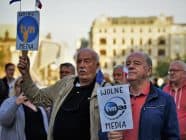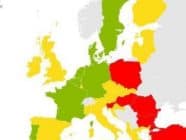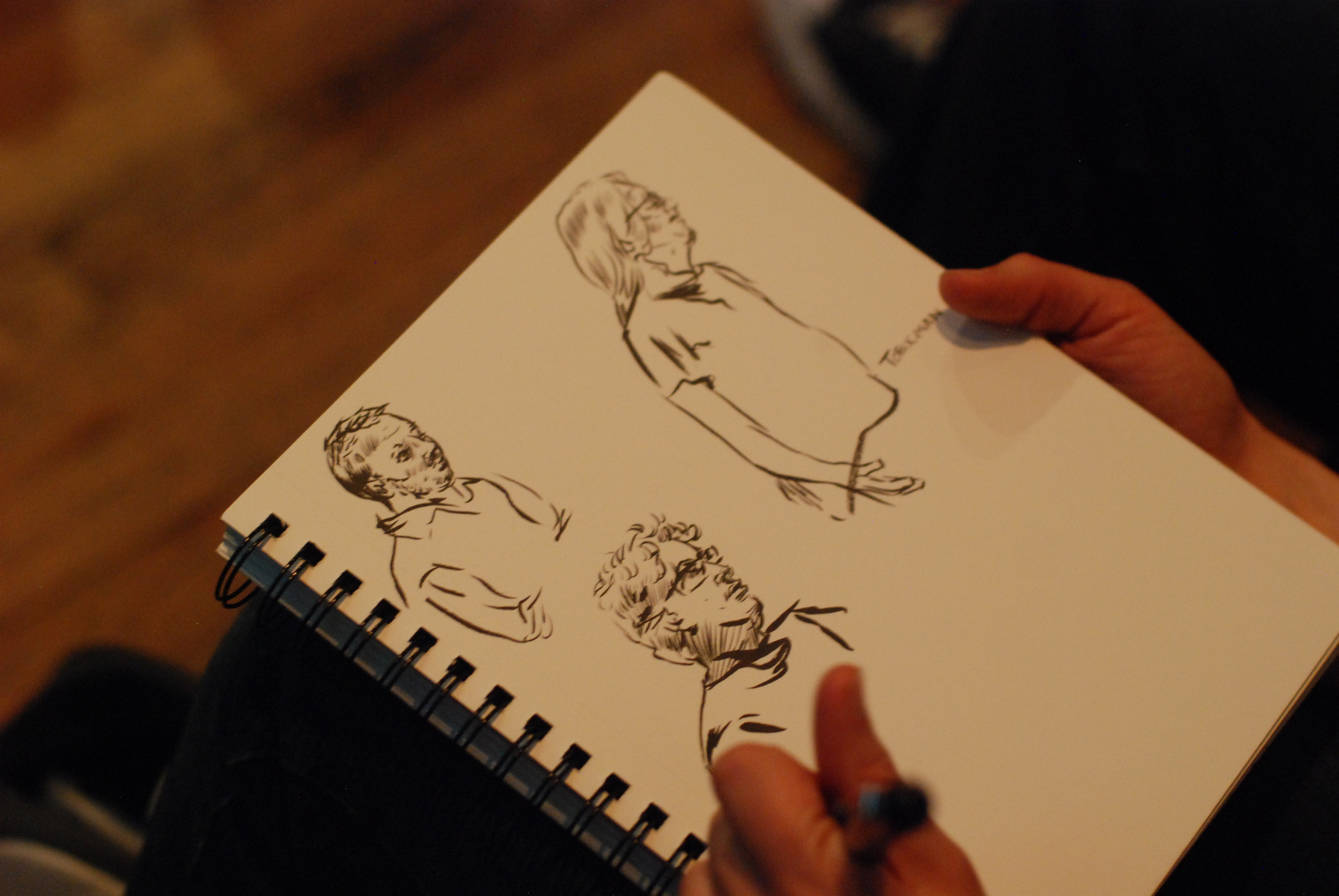Journalists arrested, netizens remanded to trial. A petition calls on EU authorities to intervene as the media in Athens faces a new season of menace.
Economic crisis is bearing down hard in the Hellenic country. Ongoing violence continues to rattle the capital while the nation remains far from uncovering a definitive solution to its economic woes. Newspapers all over the world reported on recent strikes and anti-austerity protests in Athens as parliament discusses a new €13.5 billion austerity package, yet there’s another matter of concern: freedom of speech. Index On Censorship has denounced “multiple instances of censorship and attacks on the press” and “systematic efforts to curtail media freedom” since the tension began. Kostas Vaxevanis’s story is emblematic of the precarious atmosphere among media outlets in Greece.
Vaxevanis, investigative journalist and founder of Hot Doc, was arrested in Athens on October 28th after his magazine published a leaked list of prominent Greek citizens with bank accounts in Switzerland. The list, as stated by Business Insiders, contains the names of people directly connected to Prime Minister Antonis Samaras, and has been known by the government since 2010 but kept secret until published by Hot Doc last month. Vaxevanis spent time in jail and was acquitted and released on November 1st after a blitz trial. His arrest raised condemnation all over the world. Reporters Without Borders and the OSCE Representative on Freedom of the Media, Dunja Mijatović, called for his release while an online petition on Twitter gathered approximately 16,000 signatures.
Unfortunately, Vaxevanis’ story is not the only recounting of attacks on free speech in Greece over the last few weeks. Journalist Spiros Karatzaferis was also arrested on October 31st after threatening to publish “damaging allegations” about the Greek economy. The reporter claimed to receive burning material (classified documents and emails) from the hacker collective Anonymous, which proved the Greek deficit was actually fraudulent. Two journalists working for the Greek public service broadcaster ERT, Kostas Arvanitis and Marilena Katsimi, were removed from the palimpsest after investigating an alleged case of police torture committed against anti-fascist protesters. Other cases of digital censorship against netizens have also been reported.
For these reasons, Index on Censorship and nine other media freedom organizations drafted an appeal addressed to EU authorities requesting an intervention to stop censorship in Greece, reading:
“We urge European Union institutions to make a clear stand in favour of freedom of expression and publication in the public interest in Greece. Under the Lisbon Treaty, the compliance with the EU Charter of Fundamental Rights is legally binding on EU members. This includes the right under Article 11 “to receive and impart information and ideas without interference by public authority and regardless of frontiers,” and the obligation that “the freedom and pluralism of the media shall be respected.”
When democracy is weak, risks for media freedom grow. Even the New York Times cut in on the debate with an editorial about the Greek media, defending journalists’ right to publish public-interest stories. According to the NYT, “Greece’s elected leaders need to pay more attention to investigating possible financial crimes and less to prosecuting journalists.”
Photo credits: Kostas Vaxevanis – International Support Group on Facebook
Tags: Censorship, Covering the crisis, European Union, Greece, Index on Censorship, Kostas Vaxevanis, Media Censorship, Reporters without Borders










































